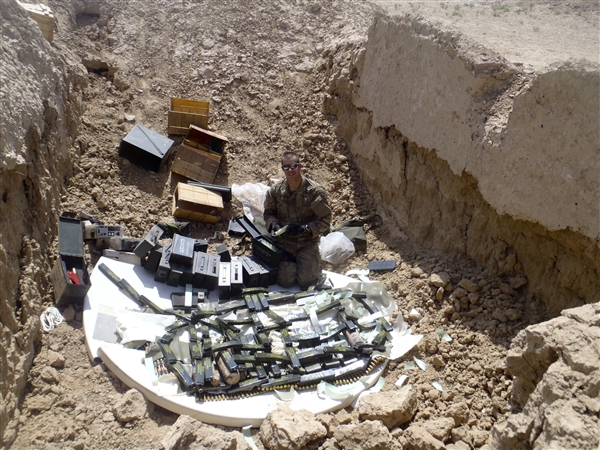3091st FOREIGN AFFAIRS Council meeting
Brussels, 23 May 2011
The Council adopted the following conclusions:
“1. The fundamental changes across the Arab world have made the need for progress on the Middle East Peace Process all the more urgent. Recent events have indeed shown the necessity of heeding the legitimate aspirations of peoples in the region, including those of Palestinians for statehood, and of Israelis for security.
2. The EU is deeply concerned about the continuing stalemate in the Peace Process and calls for the urgent resumption of direct negotiations leading to a comprehensive solution on all tracks. Our goal remains a just and lasting resolution to the Israeli-Palestinian conflict, with the State of Israel and an independent, democratic, contiguous, sovereign and viable State of Palestine, living side by side in peace and security and mutual recognition. A way must be found through negotiations to resolve the status of Jerusalem as the future capital of two States. Recalling the Berlin Declaration, the EU reiterates its readiness to recognize a Palestinian State when appropriate.
3. The EU believes that negotiations are the best way forward, if there is to be a lasting resolution to the conflict. The parties and the international community must contribute to the resumption of substantive talks as a matter of urgency, leading to a framework agreement by September 2011, as agreed by the parties and endorsed by the Quartet. In this regard the EU welcomes the recent consultations between the parties and the Quartet envoys.
4. The EU believes that clear parameters defining the basis for negotiations are key elements for a successful outcome, together with the avoiding of unilateral measures and acts on the ground which undermine confidence. The Council welcomes President Obama’s speech which sets out important elements contributing to the resumption of negotiations. The EU has set out and will actively promote its position with regard to parameters in Council Conclusions of December 2009 and December 2010, and as expressed by the EU in the UN Security Council on 21 April 2011. On this basis, it looks forward to an early meeting of the Quartet Principals to take the process forward.
5. The EU supports the holding of an international donors’ conference for the Palestinian State this June in Paris also in view of the resumption of negotiations.
6. The EU has consistently called for intra-Palestinian reconciliation behind President Mahmoud Abbas as an important element for the unity of a future Palestinian state and for reaching a two state solution. Reconciliation should also be in the long term interest of Israel by helping to engage all parties in a process leading to a sustainable peace agreement. The EU welcomes that Palestinian reconciliation has led to the cessation of rocket attacks from the Gaza Strip and insists on the need for a permanent truce. In this regard, the EU reiterates its call for the lifting of Gaza closure.
7. The Council hopes that this new context will favour without delay the unconditional release of abducted Israeli soldier Gilad Shalit.
8. The EU welcomes the agreement signed in Cairo on 3 May. The Council commends the successful mediation of the Egyptian authorities and encourages further efforts in support of the full implementation of the agreement. The EU welcomes that President Abbas, as Chairman of the PLO, will be the representative of the Palestinians in peace negotiations.
9. In this context, the EU stands ready to reactivate the EUBAM Rafah Mission, once political and security conditions allow, in order to ensure the EU third party role at the Rafah crossing point, as set out in the 2005 Agreement on Movement and Access.
10. The EU looks forward to continuing its support, including through direct financial support, for a new Palestinian government composed of independent figures that commits to the principles set out in President Abbas’ speech on 4 May. Such a government should uphold the principle of non-violence, and remain committed to achieving a two-state solution and to a negotiated peaceful settlement of the Israeli-Palestinian conflict accepting previous agreements and obligations, including Israel’s legitimate right to exist. The EU’s ongoing engagement with a new Palestinian government will be based on its adherence to these policies and commitments. The EU calls on the international community, Israel, and regional partners to work with the government on this basis. The EU also looks forward to the holding of elections.
11. The EU calls on Israel and the PA to continue their cooperation in all fields, including in terms of security and transfer of revenues and to abstain from measures that could hamper progress and further reforms.
12. The EU calls on the future Palestinian government to continue the PA’s institution-building efforts and to uphold current standards in terms of transparent and efficient public finance management, as consistently commended by the UN, the IMF and the World Bank, most recently during the AHLC meeting hosted by the High Representative on 13 April in Brussels. The EU welcomes the outcome of the reports which state that the PA is above the threshold for a functioning state in the key sectors studied. In this regard the EU expresses its full appreciation of the current Government’s success in implementing the state building plan.
Source:
Council of the European Union

 von
von 